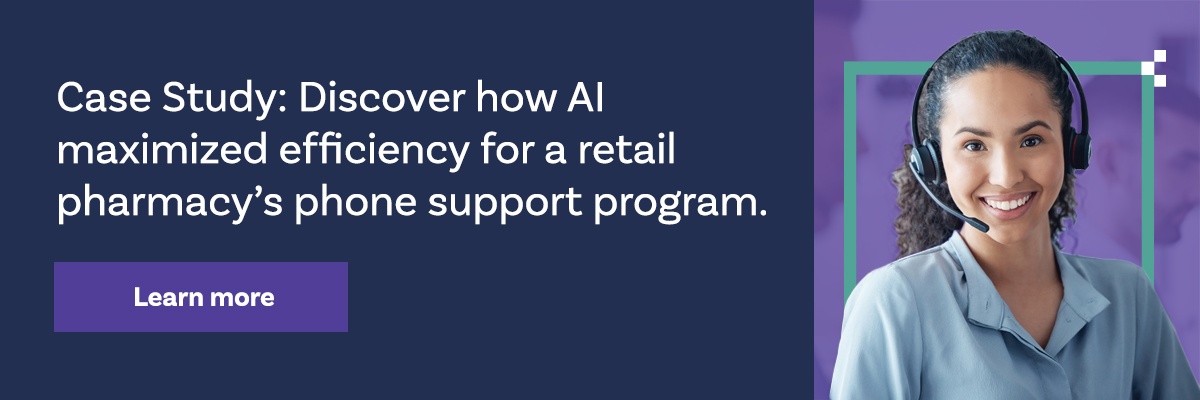In the digital age, we have access to more data than ever before. Companies of all shapes and sizes use data to make smarter business decisions, manage budgets, improve efficiency, meet customer expectations, and more.
As technology advances, people are becoming savvier in their use of data—and predictive analytics is a prime example. Learn more about predictive analytics and how it can prevent and address medication non-adherence.
Predictive Analytics: What It Is and How It’s Used
Predictive analytics is the use of historical data and statistical modeling to identify patterns and make predictions about future unknowns. Companies are increasingly employing predictive analytics to proactively identify risks and opportunities across many different industries, ranging from retail to manufacturing to healthcare and beyond.
In fact, you have probably seen real-world uses of predictive analytics. For example, personalized recommendations for content to watch on Netflix or products to purchase on Amazon are both powered by predictive analytics. But how does it work in healthcare?
More and more healthcare organizations are leveraging data to make predictions that improve the quality of patient care and individual health outcomes. This data comes from various sources, including medical records, historical patient engagement, consumer behaviors, and social determinants of health (SDOH).
From there, data-driven predictive models are created to ensure a more proactive, personalized healthcare experience for each patient. Improving medication adherence through data-driven interventions is one example of how predictive analytics can achieve better patient engagement and outcomes.

How Can Predictive Analytics Prevent Non-Adherence?
Healthcare organizations use predictive analytics to improve traditional patient support programs designed to prevent medication non-adherence. In the past, most adherence programs were rules-based—meaning the same rules applied to most patients.
Instead, with a combination of predictive analytics, artificial intelligence (AI), and machine learning, healthcare organizations—including pharmaceutical companies—can more effectively and efficiently:
Predict which patients need the most support
Rather than contacting all patients, predictive analytics can help predict each patient’s behaviors, identify patterns, and anticipate their risk of non-adherence. Predictive analytics can also identify which patients are likely to be influenced by an intervention, allowing healthcare organizations to refine support and tailor outreach to those who would benefit from it the most.
Personalize adherence interventions
Personalization is critical in modern healthcare. Personalized interventions are more likely to be effective because they appeal to each individual’s unique needs and preferences. Predictive analytics and AI personalize interventions by:
- Content: It’s important to determine how messaging can be personalized for the greatest impact. Some patients benefit more from direct reminders, whereas others are more likely to respond to educational content about the importance of adherence.
- Channel: Multiple channels can be used for adherence interventions, with different methods appealing to different patients. These channels include text messages, chatbots, apps, emails, live calls, and in-person or telehealth visits.
- Timing and Cadence: Day of week, time of day, and frequency of outreach matters. Along with determining the best content and channel for interventions, predictive analytics can predict the optimal timing and messaging cadence for each patient.
As a result, the right messages are delivered to the right patients via the right channels at the right time, contributing to positive engagement and outcomes.
Maximizing program performance over time
What’s more, with predictive analytics and machine learning, the AI gets smarter over time, continuously learning from new data, optimizing predictions, and maximizing program performance over time. AI powers confident decision making at every stage of the patient healthcare journey, from program enrollment and initiation to adherence and long-term outcomes.
With targeted channels, messaging, and timing—all tailored to meet the needs of each patient—healthcare organizations can deploy more effective, cost-efficient, and successful interventions to improve medication adherence. Schedule a live demo of AllazoHealth’s AI Platform to get a firsthand look at the benefits predictive analytics can provide to an organization like yours.
